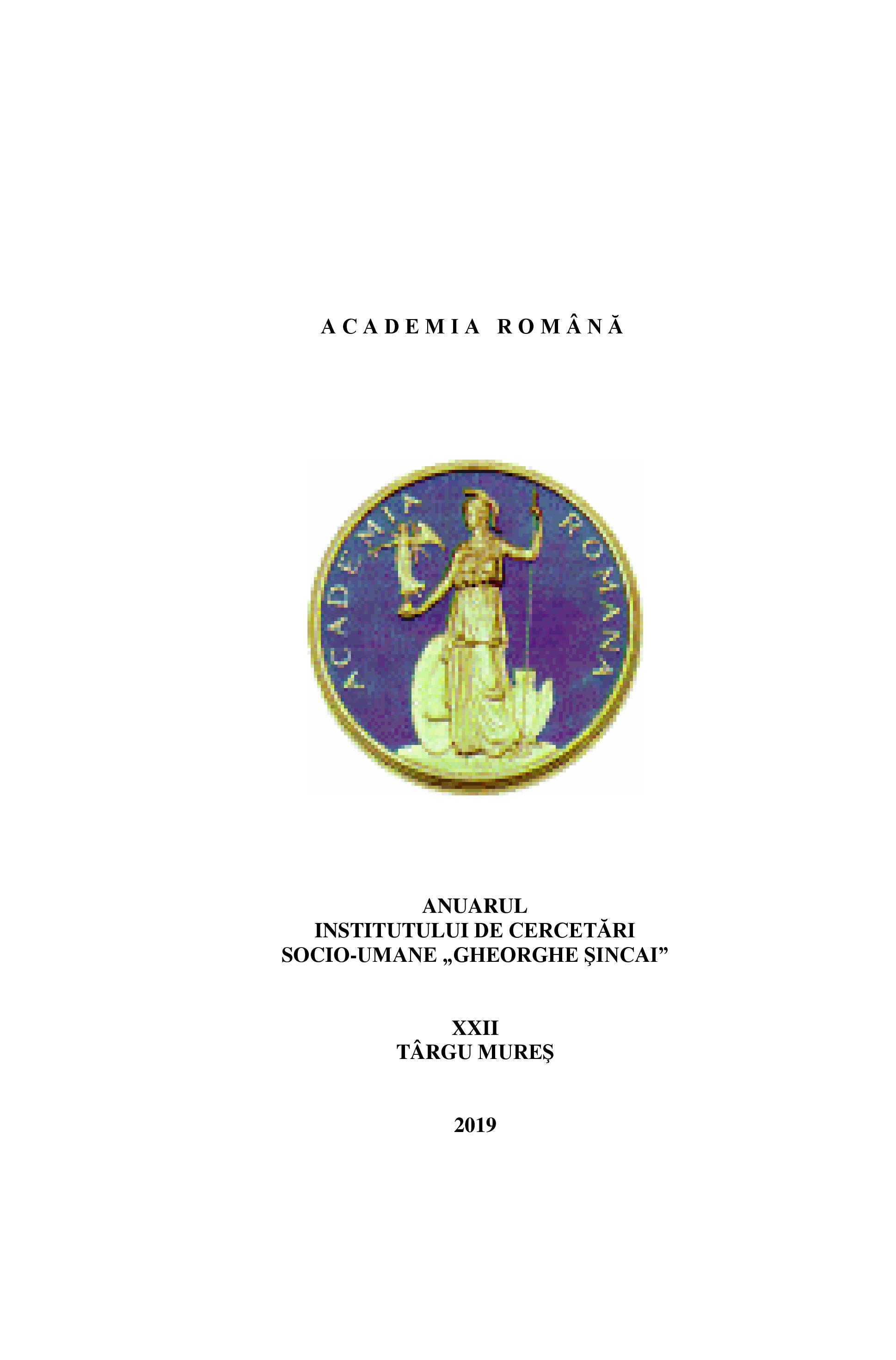Bursierii Accademiei di Romania de la Roma: opțiuni ideologice
The Scholars of Accademia di Romania in Rome: Ideological Options
Author(s): Roxana MihalySubject(s): History, History of ideas, Social history
Published by: Institutul de Cercetări Socio-Umane Gheorghe Şincai al Academiei Române
Keywords: Romanian Academy in Rome; political regime; legionaries;security;
Summary/Abstract: During its first operating period in 1922 and until its closure by the communist authorities in 1948, Accademia di Romania in Rome had over 130 members of which about 10% were "guest" members. The intellectual elite that was to be formed in Mussolini's Italy during the interwar period would also have to form certain political options that would bring later to some even the end in a rather tragic way, the case of Vasile Christescu. The ideological options of the members of the Romanian School in Rome also played a defining role in their career, the case of Alexandru Marcu, who during Ion Antonescu’s regime is named undersecretary of state in the Ministry of Propaganda, and then the change of regime will bring him the end in the prison of Văcărești. The archaeologist Vladimir Dumitrescu, a member of the Romanian School in Rome from 1926 to 1928, would join the legionary movement in 1932, reaching the rank of legionary commander in 1937. According to the Securitate’s archives, he was part of the club "All the better", a club that included several of his colleagues from Rome, namely Emanoil Costescu, Grigore Florescu etc. Not all sympathizers’ members of the legionary movement have come to a tragic end, Dumitru Găzdaru can be recalled here, who after a short time in running the Accademia di Romania in Rome, managed to flee to Argentina in Buenos Aires, being part of the Mexican legionary group. At the same time, he is noted as the director of the “Cuget Romanesc” legionary magazine appearing in Buenos Aires. From the archives of CNSAS we also find about the members of the Accademia di Romania in Rome who have agreed to collaborate with the new regime, occupying leading positions in the state institutions and with each occasion of a congress that was going to be held abroad, they were receiving the mission to "visit" the Romanians settled abroad.
Journal: Anuarul Institutului de Cercetări Socio-Umane »Gheorghe Şincai« al Academiei Române
- Issue Year: 2019
- Issue No: 22
- Page Range: 206-217
- Page Count: 12
- Language: Romanian

